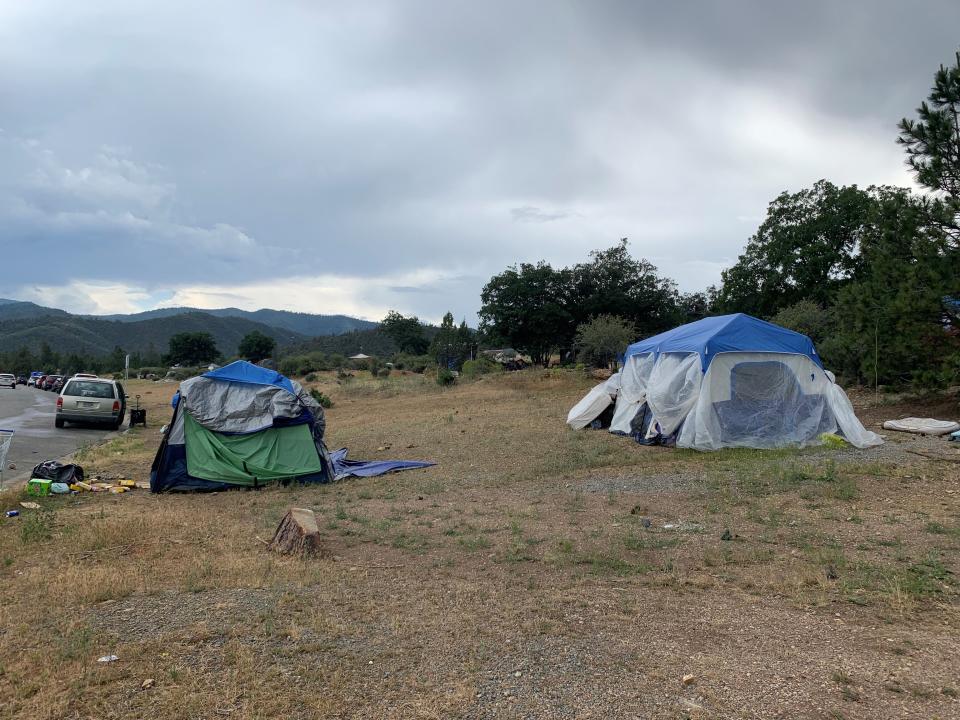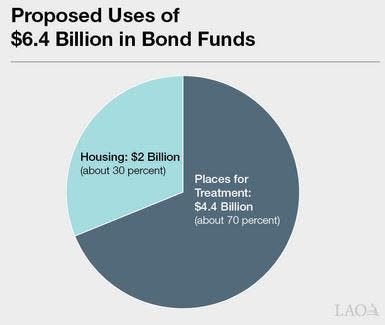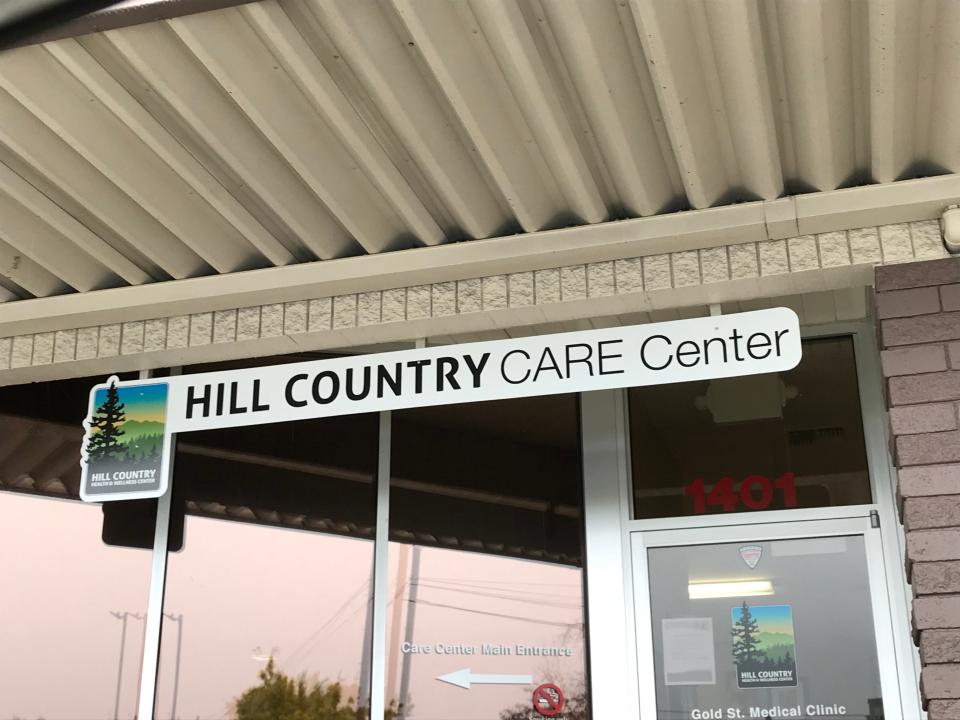Is Prop 1 the answer to homelessness in Shasta, Siskiyou counties?
California voters decide on March 5 if they wish to borrow up to $6.4 billion in bonds to help house homeless people in the state and build addiction recovery and mental health facilities.
Should it be approved, Proposition 1 clears the way for that bond money to pay for housing and employment assistance, as well as provide addiction treatment for some people who are homeless.
The proposition could also reduce the amount of funding that now goes to cover current county mental health services, according to the state.
Prop 1 supporters point to California's massive homeless population of 172,000 and the need to assist people with addiction problems who end up on the streets.

In order to pass, Prop 1 requires 50% of the votes plus one vote, according to the California Secretary of State's elections information office.
How much Prop 1 could cost
If it passes, Prop 1 would allow the state to borrow up to $6.4 billion to build more mental health, drug and alcohol treatment facilities for people who are homeless and suffer from addiction.
The proposition would also shift to the state's control about $140 million annually in tax revenue that now goes to counties to help fund current mental health, drug and alcohol treatment programs.
It would also increase California's bond repayment costs by $310 million per year for the next 30 years, according to the state.
How many people Prop 1 could help
State estimates say bond money could build up to 4,350 housing units, with 2,350 set aside for veterans. The new mental health and addiction recovery facilities could serve up to 6,800 people at a time, according to the Legislative Analyst's office.
Bond-funded housing could help 20% of homeless veterans get off the streets, say advocates.
Prop 1 increases funding for homeless housing, but could reduce current mental health funding
Should it be approved, Prop 1 would replace an existing source of mental health services funding, the 2004 Mental Health Services Act.
Passed by voters in 2004, the Mental Health Services Act pays for prevention and early intervention services, including the resources needed to help people "at risk for serious mental health issues" and their families, according to the California Department of Health Care Services.
Prop 1 would make MHSA funds for drug and alcohol addiction treatment available to people without mental illnesses, according to the state.If the proposition is approved, it could also reduce some funding now going to California counties to pay for mental health programs.
How the state would distribute Prop 1 money
A 1% tax on Californians making more than $1 million annually funds the Mental Health Services Act.
Each month, counties receive 95% of that money to pay for mental health services. The other 5% goes to the state for mental health programs, according to an analysis of Prop 1 from the state.
Proposition 1 would double the percentage of "millionaire's tax" money allocated to the state to 10%. The amount counties receive would dip to 90%.
There would be no changes to the MHSA tax. But the proposition shifts roughly $140 million annually of MHSA money from the counties to the state. This amount would be higher or lower depending on the total amount of MHSA money collected annually.
Note to readers: We’ve made this story free as an important public service. If you are able, help power local journalism. Subscribe to the Redding Record Searchlight.
How the state would spend future millionaire tax allocations
If the proposition passes, counties would have to spend a portion of their future MHSA money on housing, employment assistance and education. Counties would continue to provide their current mental health services under the proposition, but they may have less MHSA money available to fund them.
Currently, counties aren't required to use any of their MHSA money to pay for mental health services.
"How much counties would spend on different services would depend on future decisions by the counties and the state," the Legislative Analyst's office reported.
How the state would spend the $6.4 billion in bonds
Counties and Native American tribes could apply for grants and loans from the $6.4 billion bond fund to help build housing projects and mental health and addiction recovery centers.
County governments would have to cover at least some of the operating costs on grant-funded projects, according to the Legislative Analyst's office.

A minimum of 30% of the bond money would be earmarked exclusively to build housing and employment service centers, according to the state.
How much funding North State counties get now to provide mental health services
MHSA funds in part law enforcement crisis intervention teams, like the program that operates in Redding.
Hill Country CARE Center and suicide prevention programs are also among the dozens of other Shasta County programs receiving mental health services money, according to Miguel Rodriguez, Behavioral Health and Social Services Branch Director at the county's Health and Human Services Agency.

Here are the amounts of Mental Health Services Act funds that North State counties received between Aug. 15, 2023 to Jan. 12, 2024, according to California State Controller's office:
Shasta County: $11.4 million
Butte County: $10.48 million
Humboldt County: $9.24 million
Tehama County: $3.47 million
Siskiyou County: $3,34 million
Glenn County: $2.7 million
Del Norte County: $2.38 million
Lassen County: $2.27 million
Plumas County: $1.86 million
Trinity County: $1.63 million
Modoc County: $1.19 million
What supporters and opponents say about Prop 1
According to Prop 1 supporters, California's rising problems with homelessness, addiction and mental illness are caused in part by the state's reduction in funding for mental health hospitals during the late 1900s. Prop 1 will give underfunded programs the money they need to get people off the streets, according to a statement issued by supporters.
Opponents criticized Prop 1 for allowing the state to take a larger percentage of the "millionaire's tax" and its requirement that counties spend more of their allocations on housing. The latter would hurt "already underfunded" mental health programs, according to the state's voters guide.
Some last-minute amendments to the proposition could allow funding of "involuntary treatment in locked facilities," according to the League of Women Voters of California, which opposes Prop 1.
Opponents also point to long-term costs. Taxpayers will be on the hook for an estimated $10.58 to $12.45 billion that will "take decades" to pay off, they say in the voters guide.
Read the state's description of Governor Gavin Newsom's Prop 1 at voterguide.sos.ca.gov/propositions/1.
Jessica Skropanic is a features reporter for the Record Searchlight/USA Today Network. She covers science, arts, social issues and news stories. Follow her on Twitter @RS_JSkropanic and on Facebook. Join Jessica in the Get Out! Nor Cal recreation Facebook group. To support and sustain this work, please subscribe today. Thank you.
This article originally appeared on Redding Record Searchlight: Prop 1 in North State: Impact on homelessness, mental health services

